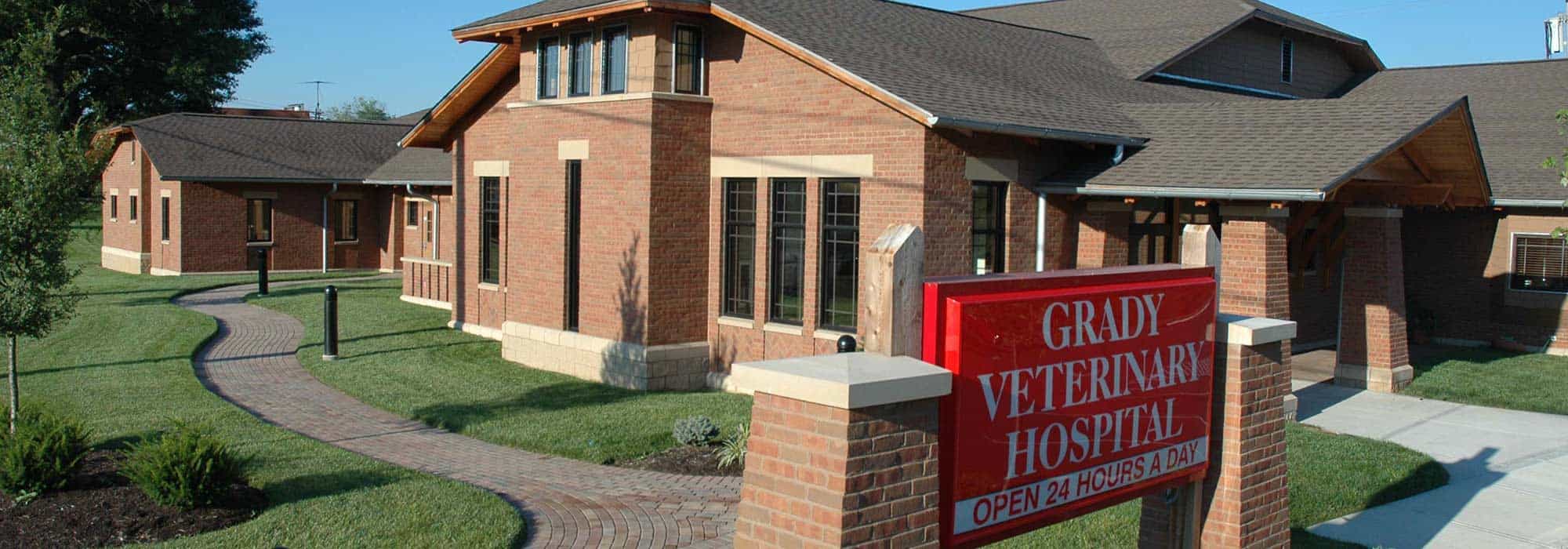Experienced Veterinarians Serving Cincinnati
The hospital was started in 1958 by Dr. Karl S. Grady, in a house across the street from our current location. Dr. Karl enlarged and remodeled that house three times over the years to meet the demands of his increasing practice.

In 1974, Grady Veterinary Hospital began operating 24 hours a day, 7 days a week- the first and only practice of its kind in Cincinnati. Dr. Karl Grady's son, Dr. Jeff Grady, began running the practice in 1999 and bought it in 2001. He built the current hospital in 2005, supplying the veterinarians and staff with a modern clinical and surgical space; state-of-the-art accommodations for our patients; a pleasant, inviting atmosphere; and ample parking for our clients.
We have served the same community for over 60 years and encourage all of our professional staff members to participate in neighborhood events and volunteer at area organizations.
Winner, Veterinary Economics Award of Merit in 2005
Veterinary Economics is a monthly trade journal for veterinarians that publishes information about financial issues impacting our field. Each quarter, they select a recently built veterinary hospital for an award. A panel of five veterinary architects selects the designs that they believe are worthy of the award.
It is a big honor to be chosen, as there are literally hundreds of entries each year. All of us at Grady Veterinary Hospital were very pleased and honored to be recognized in this manner.

